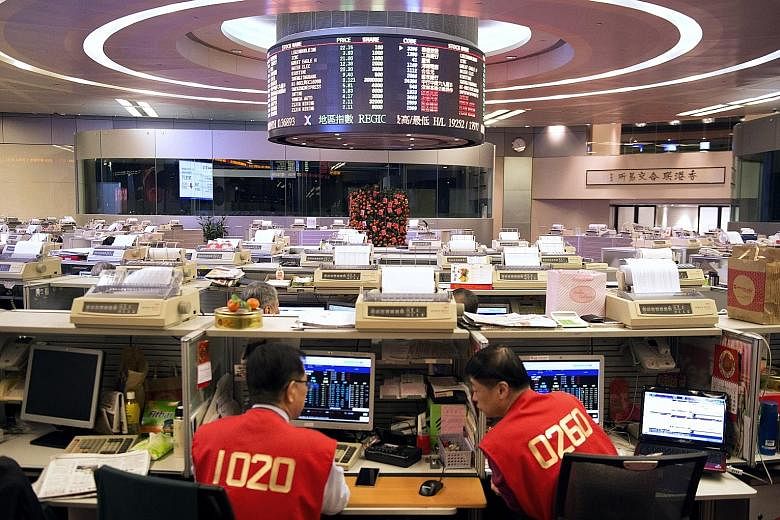Hong Kong stocks are becoming expensive - with the benchmark Hang Seng Index touching two- year highs - so China's fund managers are looking beyond Greater China for new ideas.
Some are increasingly keen to explore Singapore, and companies listed here should take advantage of that by heading north to market themselves, said two Hong Kong- based fund managers here yesterday.
"Hong Kong is not big enough to catch all the money coming out of China. China today has a daily turnover of 400 billion yuan (S$81.4 billion), and that's already down from its peak of 1 trillion yuan. Hong Kong has a turnover of HK$80 billion (S$14 billion) and with this turnover, a lot of stocks are already becoming expensive. There will be a flow-on effect," said Mr Alan Wang, chief executive of WIM Asset Management.
Speaking at a seminar organised by Asia Fund Space at the SGX Centre yesterday, Mr Wang noted that Hong Kong, like other emerging markets, had suffered a net capital outflow over the last three years.
But liquidity would have been worse if not for southbound Stock Connect capital inflows that began to funnel in from the mainland in late 2014, reaching HK$350 billion in two years.
"There is a cycle to everything," said Mr Wang, formerly of Value Partners. "They may not buy today (but) educate them so that when the time does change (and) macro conditions are right, they are ready to buy into you. We and other Chinese fund managers particularly like companies that have global exposure (and are) leaders in their field of operation."
Another attractive theme is services businesses, as China is a net importer of services, including healthcare, eldercare, beauty, education and tourism, said Mr Wang.
Mr Alex Wong Kwok Ying, director of Ample Capital Asset Management, said he is sticking to five themes that have worked in China.
These are network companies such as Tencent, medical-related sectors, downstream manufacturers, owners of rent-seeking strategic assets such as airports and utilities businesses.
Mr Wong also likes luxury brands, which he believes are resilient to the rise of e-commerce giants like Amazon that put distribution channels before quality.
It is unlikely that the next Tencent will be uncovered here, "but you can be the next IGG", said Mr Wong.
IGG, a mobile games developer headquartered in Singapore, was the second-most actively traded stock among Shenzhen investors in Hong Kong last month. The first was Tencent.
"People are not only buying big names, they are looking for growth and rallies," said Mr Wong.
"I think Singapore could have a very big edge in e-sports related companies."
That said, Mr Wong's investments in the Singapore market have been confined to blue chips.
"China is very strong in the new economy," he said, whereas Singapore still offers more of the "old economy".
Mr Mark Lee, managing director of Asia Fund Space, which helps listed companies link up with fund managers, said: "There is a myth in the market that Chinese companies don't like Singapore companies. This is a total myth. We have just seen with our own eyes what the Chinese have done with Global Logistic Properties ."
Investor relations teams here have some catching up to do. Mr Lee said: "A Singapore company on average meets 40 to 50 investors a year. In Hong Kong, it's three times more."


